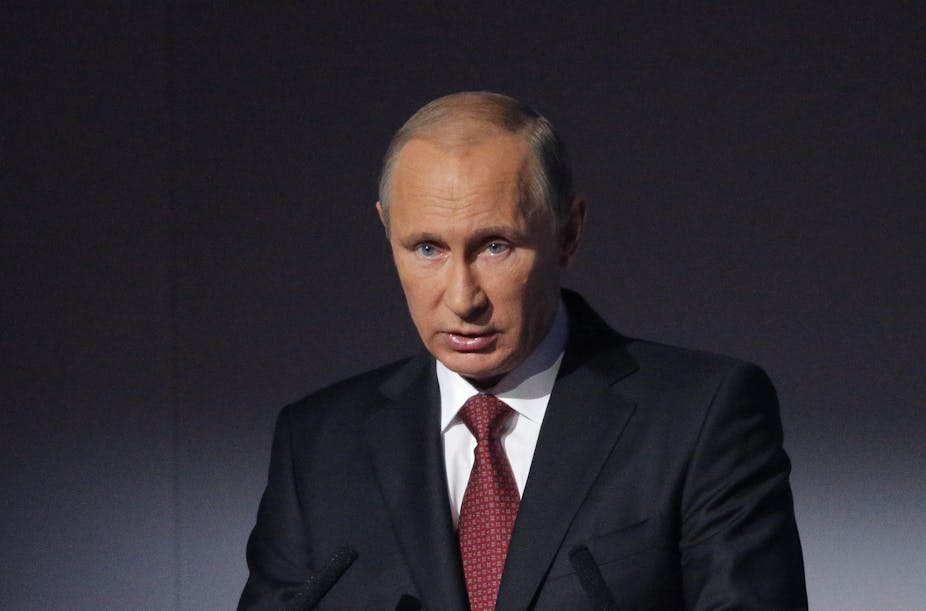The G20 is bigger than the bad behaviour of any one country, and it would be unfortunate if the controversy over Russian president Vladimir Putin’s presence – now confirmed - were to overshadow next month’s leaders’ meeting in Brisbane.
Having the G20 here is significant for Australia, and it should be remembered that the grouping is primarily focussed on economic rather than political or security matters.
Australia was never going to be able to ban Putin; it was a matter of what other countries thought. Some would always support Russia, while others would take the view that the G20 would inevitably be weakened once an exclusion precedent was set.
Treasurer Joe Hockey said at the weekend it was “the consensus of the G20 and it’s certainly the strong view of the President of the United States, the Chancellor of Germany and others that he should be attending.
"We are the hosts, we don’t have any unilateral decision making power in relation to that, and he will be attending.”
The government hopes and expects G20 members will take the opportunity for some tough talking to Putin about Russia’s behaviour in Ukraine. But for Abbott it is obviously an awkward situation: he knows the photo optics won’t be good given his strong rhetoric in the wake the MH17 downing.
Opposition leader Bill Shorten said on Sunday that he understood the government was in a difficult position because it was an international conference not an Australian one.
But “I am very disappointed the Abbott government has gone from talking tough to trying to pretend Putin coming here isn’t an issue Australians are concerned about.
"It’s disappointing that the Abbott government couldn’t use the leverage that hosting the G20 and holding a seat on the UN Security Council afforded for preventing the attendance of Mr Putin.”
Shorten, who has taken a bipartisan view on the commitment to Iraq and national security, is seeking some product differentiation. But it comes out as a short term view on the G20 and an expedient political backhander at the government – though his stand may be popular in the community.
Meanwhile the government is seeking to have the immediate outcome of the Brisbane meeting look as solid as possible.
Australia has put a proposal to other countries that it becomes “the hub of world activity in infrastructure”.
Abbott said this “Sydney hub” would draw together “infrastructure financing best practice from around the world.
"So if a country is considering a public private partnership, for instance, to build a dam in Africa, they can come to Sydney and find out all they need to know about how it’s being done elsewhere and learn the lessons that they might need to learn to do it well in their country. It’s a way of ensuring the learnings and the insights of this particular G20 are continued in the months and years to come.”
Australia has also been promoting, as a centrepiece of its G20 host year, the ambitious goal that global growth should be lifted by 2% above what it would otherwise be over the next five years.
This target was embraced by the countries earlier in the year but since then the prospects for the international economy have become bleaker, including in the recent International Monetary Fund forecasting.
Mike Callaghan, program director of the G20 studies centre at the Lowy Institute, who is currently visiting Washington, says the 2% target has been helpful because it has focussed debate but “it will be a hard slog”.
Hockey says 900 reform proposals have been submitted for the action plan to reach the growth target but they won’t be made public until the Brisbane summit. The IMF and the OECD have seen them however, and indicated that most of the growth would come from reforms in labour markets, product markets and increased public investment particularly in infrastructure.
Callaghan says that individual governments will need to win their own domestic political battles to advance contentious reforms. What will be important in the years after the Brisbane meeting, he says, will be the monitoring of the implementation of the measures, and the IMF and the OECD should have a key role in this. The leaders in Brisbane should announce when the first progress report will be given, he adds.
While the Putin presence will be a problem for the Abbott government to manage at the time, final judgement about the growth goal Australia has urged will come when the hoopla of Brisbane is a distant memory.

